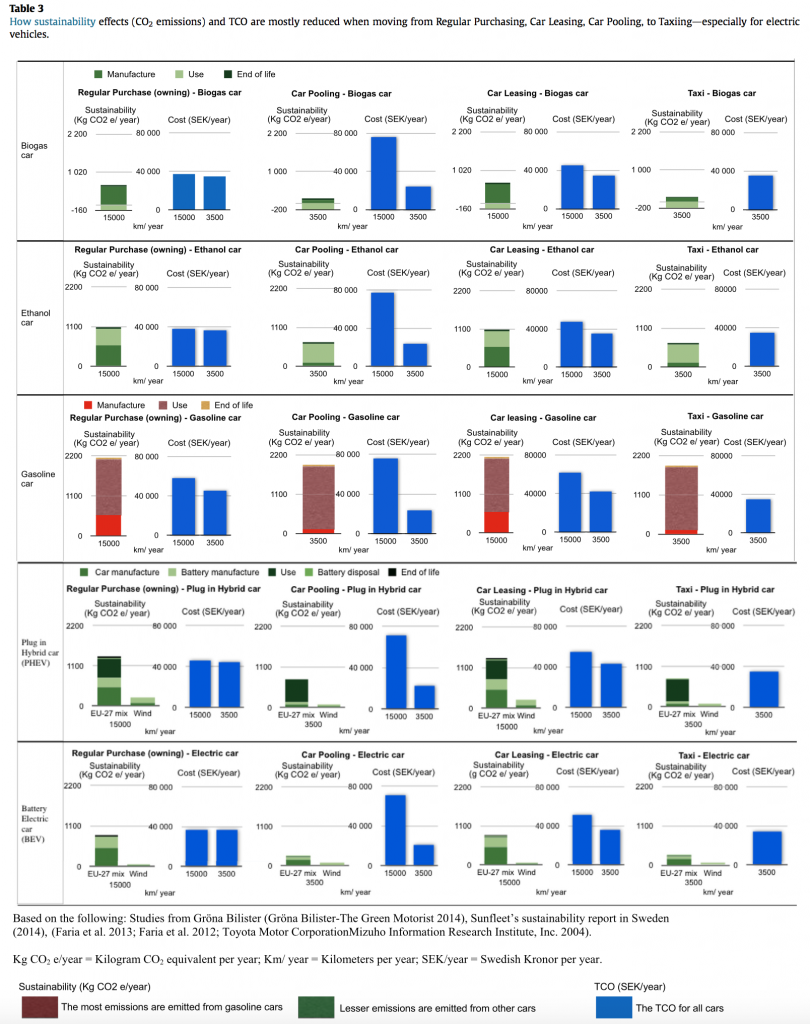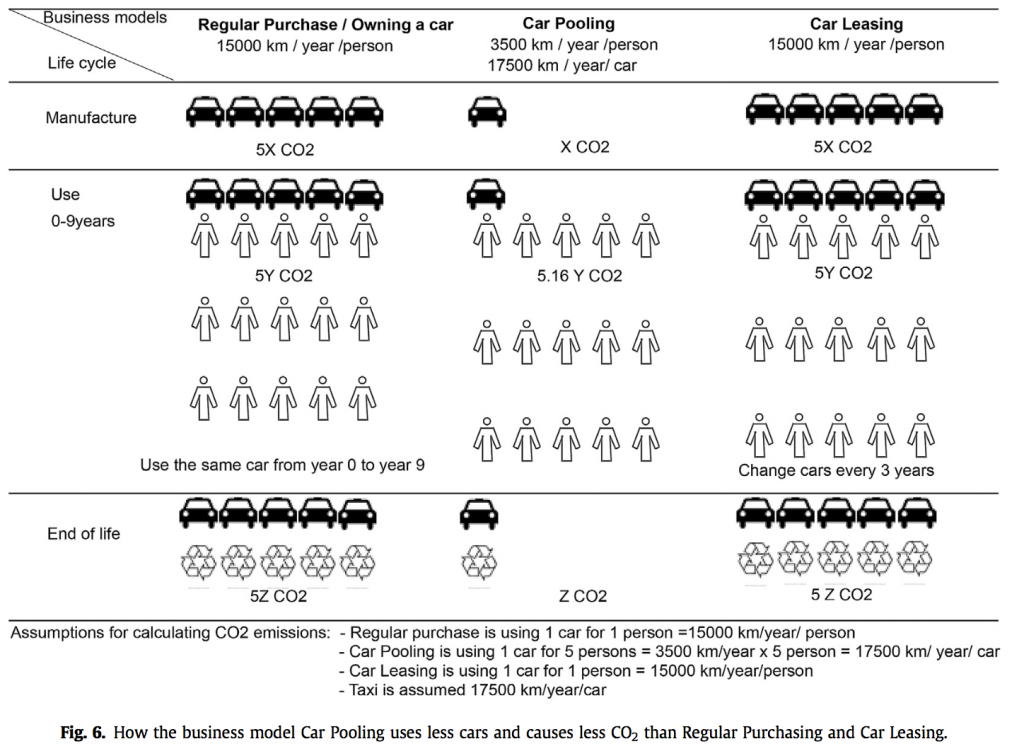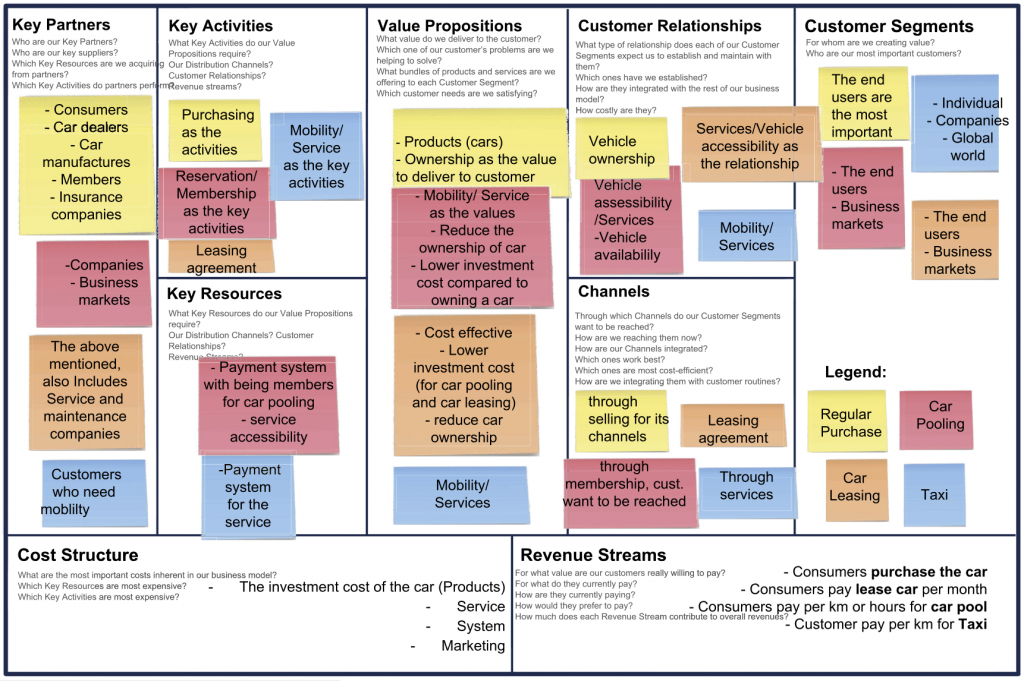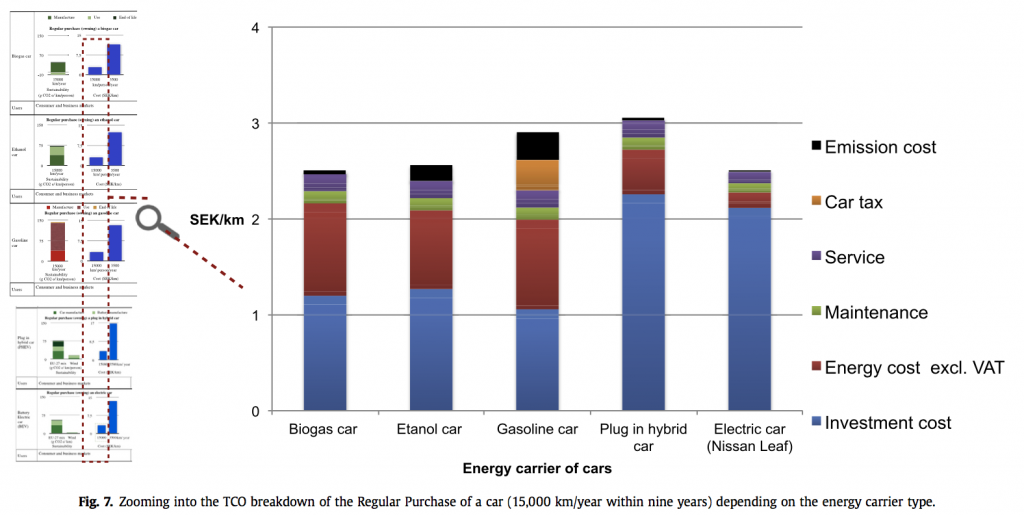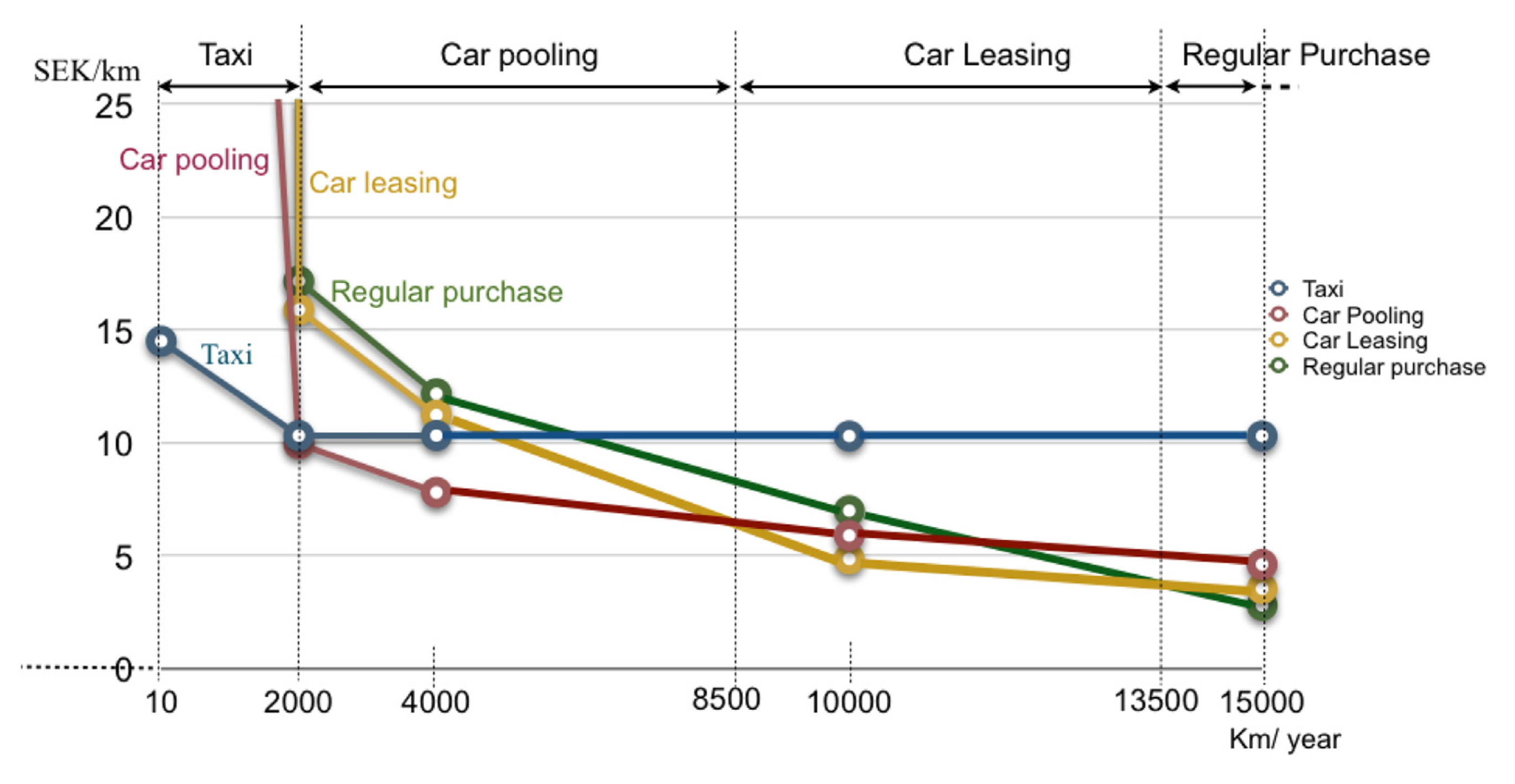
Competitiveness and sustainability effects of cars and their business models in Swedish small town regions
- Post by: Tobias Larsson
- 20th April 2016
- No Comment
Research paper published in Journal of Cleaner Production.
Highlights
- Gasoline car causes the most emissions from its manufacturing and use phases.
- Local jobs from renewables give positive contribution to social sustainability.
- Renewable electricity in electric carpool cause least socio-ecological impact.
- Car Pooling is more cost-effective for those who drive from 2000 to 8500 km.
- People travel less than 13,500 km/year should not consider owning a car.
Abstract
This article aims to develop and test a new approach for comparing sustainability effects (mainly approximated through CO2 emissions) and the total cost of ownership of various business models (Regular Purchasing, Car Pooling, Car Leasing, and Taxiing) applied to private cars with different energy carriers (Biogas, Ethanol, Gasoline, Plug-in Hybrid, and Electric). The results indicate that, out of all of the vehicles, electric vehicles are the most competitive—from both an ecological and economic perspective. Moreover, of all of the business models, Car Pooling is the most competitive when driving short to medium distances, reducing CO2 emissions by 20–40% compared with Regular Purchasing. Meanwhile, Car Leasing emits the same amount of CO2 emissions as Regular Purchasing if both are driven the same number of kilometers per year. The results also indicate that, from a cost effectiveness perspective, people who travel less than 2000 km per year should primarily consider using Taxis or similar services, while Car Pooling is most cost effective for those who travel from 2000 to 8500 km. For those who travel between 8500 and 13,500 km per year, Car Leasing is the most cost effective, and Regular Purchasing is the best option above 13,500 km per year. If most car owners were to accept and adapt to this identified need for a market move towards Car Pooling with Electric Vehicles, necessary transportation could be ensured while significantly reducing the number of cars on the road, whether from Regular Purchasing or Car Leasing, as well as those that run on fossil fuel. This, in turn, would result in less fossil fuel use, fewer emissions, and decreased negative effects on human health.
Keywords
-
Business modeling, Sustainable transport, Total cost of ownership, Electric car, Fossil-fueled car, Life cycle costing
Reference
- Nurhadi, L., Sven Borén, Henrik Ny, Tobias Larsson, (2016), Competitiveness and sustainability effects of cars and their business models in Swedish small town regions. Journal of Cleaner Production, (Systematic Leadership towards Sustainability). Journal of Cleaner Production,Volume 140, Part 1, 1 January 2017, Pages 333–348. ISSN 0959-6526, E-ISSN 1879-1786. http://dx.doi.org/10.1016/j.jclepro.2016.04.045
Download paper
- http://urn.kb.se/resolve?urn=urn:nbn:se:bth-11835
- http://www.sciencedirect.com/science/article/pii/S0959652616303134

